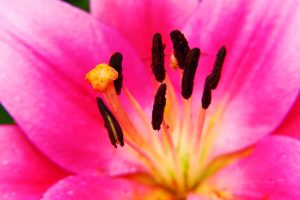Regardless of the weather, spring is officially upon us! Unfortunately, this means allergies are upon us as well. We all enjoyed the break from allergies this past winter. Now, with spring, comes the increase in pollen from trees, grass, and weeds. However, if you are set on avoiding spring allergies, there are simple guidelines to help you.
Common Spring Allergies & Symptoms
According to the CDC, nearly 8% of adults and 6% of children in the U.S. suffer from spring allergies. Common symptoms include:
- Runny nose and/or nasal congestion
- Sneezing, wheezing, coughing
- Watery, itchy eyes, as well as mouth or throat itchiness
- Difficulty breathing and chest tightness
Teenagers between the ages of 12 and 17 are the most vulnerable to seasonal allergies. Further, these allergies will likely increase the severity of symptoms in adults and children suffering  from asthma. Pollen released by trees and other plans is the most common spring allergy. It is easily inhaled as fine, powdery particles that float in the air. Some of the most common allergy-inducing plants include:
from asthma. Pollen released by trees and other plans is the most common spring allergy. It is easily inhaled as fine, powdery particles that float in the air. Some of the most common allergy-inducing plants include:
- Elm, Maple, and Oak trees
- Bermuda and Timothy grass
- Mold spores
Treating Allergies
Seasonal allergies don’t normally need to be treated by a doctor. However, if symptoms persist even with treatment, it may be wise to consult your physician. Those who suffer from severe allergies may be eligible for specific allergy shots. Most seasonal allergies can be treated with over-the-counter medicines, including:
- Nasal decongestants – available in oral, liquid, spray, and nasal drop. These can be used for short-term relief.
- Nasal steroid sprays – these reduce the swelling and production of mucus. They are offered in both regular and a prescription strength.
- Oral antihistamines – histamine triggers allergy symptoms, this OTC medicine can suppress that over time.
- Eye drops – short-term drops containing topical decongestants. Also available in prescription strength.
If you are lucky enough to not be experiencing allergies yet this season, here are a few ways to prevent the onset:
- Track local pollen counts – your local weather forecast will report daily pollen counts. Further, you will find the breakdown of pollen or mold types.
- Stay indoors – early in the day is when the pollen count is typically the highest. Therefore, if you need to go outdoors during a particularly high-count day, do it later in the day.
- HEPA filters – designed to remove airborne particles, these can be purchased online or at hardware stores. Keep your windows closed for best use, turn on A/C, if necessary.
- Dust frequently – vacuuming and dusting your home regularly is the best way to avoid allergens. Pet-friendly vacuums are best for sucking up allergens.
- Wash up before bed – your body and hair can collect large amounts of allergens throughout the day. In addition, wash your clothes as soon as possible as well, and avoid hanging them outside to dry.
Insurance Questions?
Empower wants to help you get the best insurance for your needs and the most for your money. We want to help you stay on top of your health.
CALL US at (844) 410-1320
Get affordable health insurance quotes by clicking here.
See our other websites:

